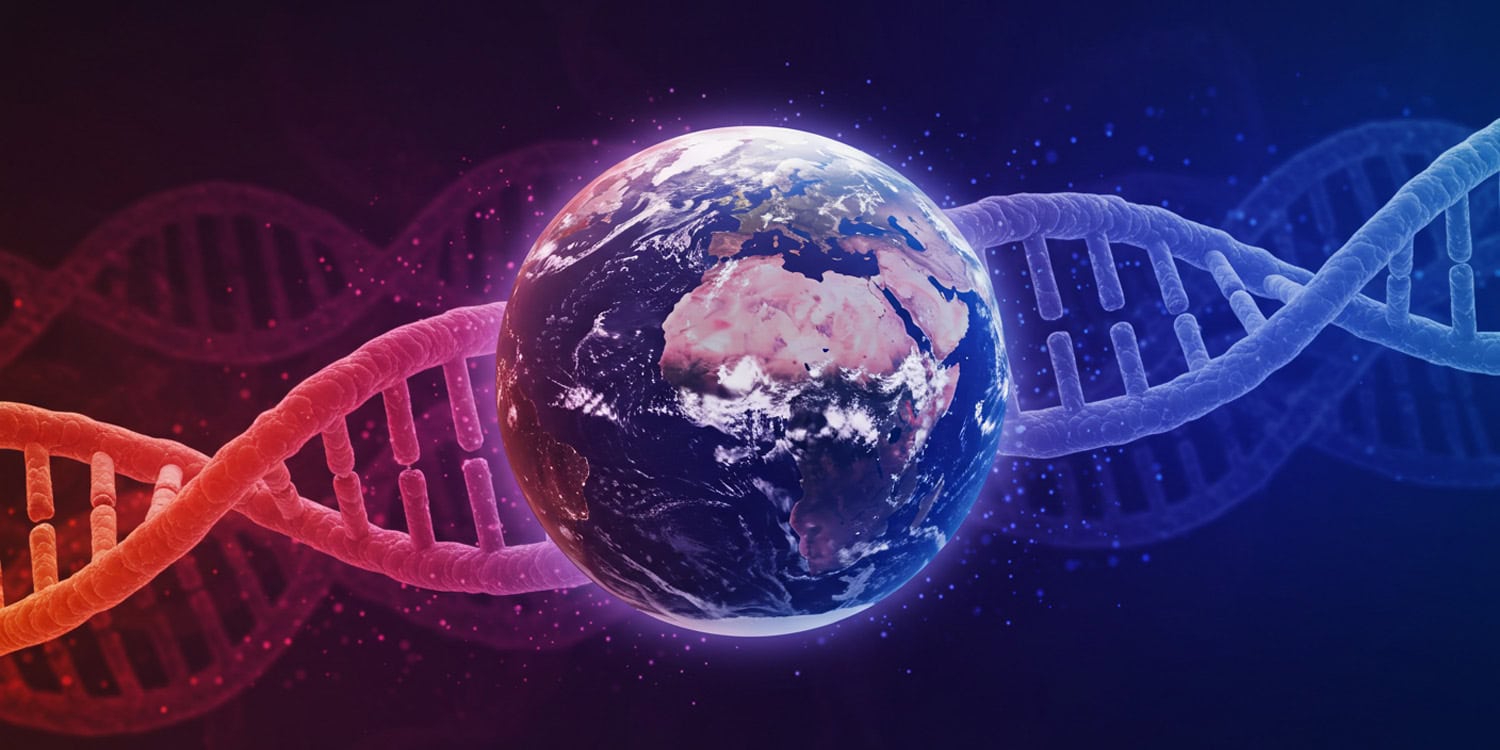Want to improve global relations? The answer might be simpler than you think. A recent study published in the European Journal of Social Psychology demonstrated that showing people an eleven-minute video emphasizing the shared genes of all humans can lead to more positive attitudes towards people from other countries. This finding suggests a straightforward way to combat prejudice and encourage a sense of shared humanity.
The motivation behind this research stemmed from a growing concern about prejudice and discrimination directed towards people perceived as outsiders. Across the globe, there has been a rise in nationalistic sentiments and exclusionary politics, with some leaders promoting the idea of protecting national borders and expressing bias against immigrants and minority groups. These attitudes are often rooted in the belief that different groups are fundamentally distinct from one another, and this perceived difference can fuel negative stereotypes and discriminatory behaviors.
Interestingly, many people hold inaccurate beliefs about the genetic differences between racial groups. Previous research has shown that the average person estimates that different races share only about 68% of their genes. However, the reality, as revealed by the Human Genome Project, is quite different. Scientists have found that all humans, regardless of their background, share 99.9% of their genetic makeup. The very small fraction of genetic variation that does exist is mostly found within populations, not between groups defined by race. In fact, only a tiny portion, about 1/200th of 1%, of our genetic differences has been used to categorize people into the commonly recognized racial groups.
Given this scientific understanding of human genetics, the researchers hypothesized that providing people with accurate information about our shared genetic heritage might help to break down the perception of distinct and separate groups. They reasoned that if people understood how fundamentally similar we are at a genetic level, it could encourage them to see those from different countries as part of a larger “us” rather than a separate “them.” This shift in perspective, known as recategorization, could potentially reduce prejudice and promote more inclusive attitudes.
To investigate this idea, the researchers conducted three separate studies. In each study, they recruited participants and divided them into two groups: an experimental group and a control group.
In the first study, 123 European New Zealand university students participated. The second study involved 93 European participants from the United Kingdom recruited online. The third study broadened the participant pool to include 150 individuals from the United Kingdom with a wider age range, also recruited online.
Before the intervention, all participants in each study completed questionnaires designed to measure their attitudes towards people from other countries and their level of social dominance orientation. Social dominance orientation refers to the degree to which someone believes that inequality among social groups is acceptable and justified. These initial questionnaires served as a baseline to compare with their attitudes after the intervention.
The experimental group in each study then watched an eleven-minute video that presented scientific information debunking the idea that race has a genetic basis. The video explained the findings of the Human Genome Project, emphasizing that humans share 99.9% of their genes and that racial categories are not supported by genetic science. To reinforce the message, the video presentation included interactive elements. After each key point was presented, participants were asked a multiple-choice question to check their understanding before moving on to the next piece of information. For example, one question asked, “Humans from different races share what percentage of their genes?” with the correct answer being 99.9%.
The control group, on the other hand, watched an eleven-minute music video that focused on the effect of music learning on a child’s brain. This video was chosen as a control because it was engaging and of similar length to the genetics video but did not contain information related to genetics or intergroup relations. Like the genetics video, the music video also included interactive multiple-choice questions to maintain participant engagement.
After watching their assigned video, all participants completed the same questionnaires measuring their attitudes towards people from other countries and their social dominance orientation again. By comparing the pre- and post-video questionnaire responses between the experimental and control groups, the researchers could assess the impact of the genetics video on participants’ attitudes.
The results across all three studies consistently showed that participants who watched the genetics video demonstrated a significant improvement in their attitudes towards people from other countries. Specifically, their scores on the questionnaire measuring attitudes towards “people all over the world” and “Americans” increased significantly from before to after watching the video, and this improvement was greater compared to the group that watched the music video. This effect was observed in both New Zealand and the United Kingdom, and across different age groups in the third study, suggesting that the positive impact of the genetics video was robust and generalizable.
Interestingly, while the video successfully improved attitudes towards outgroups, it did not have a noticeable effect on participants’ social dominance orientation. This suggests that while people became more accepting of those from other countries after learning about shared genetics, their general beliefs about social hierarchy and group inequality remained largely unchanged in the short term.
Looking ahead, the researchers suggest several avenues for future research. One direction could be to explore whether the genetics video’s effect is driven by reducing people’s belief in essentialism, the idea that different groups have deep, inherent differences. By directly measuring essentialist beliefs, future studies could clarify whether this is the mechanism through which genetic information improves intergroup attitudes.
Another question for future research is to examine whether this type of genetic information can improve attitudes towards any outgroup, not just those based on nationality or race. For example, in highly polarized societies, could such a video help bridge divides between opposing political groups? Exploring the breadth of this intervention’s effectiveness across different types of intergroup biases would be a valuable next step.
The study, “Information Regarding Shared Genes Between Humans Improves Attitudes Towards World Members,” was authored by Kangning Du, John A. Hunter, Kumar Yogeeswaran, Damian Scarf, Hitaua Arahanga-Doyle, and Ted Ruffman.




